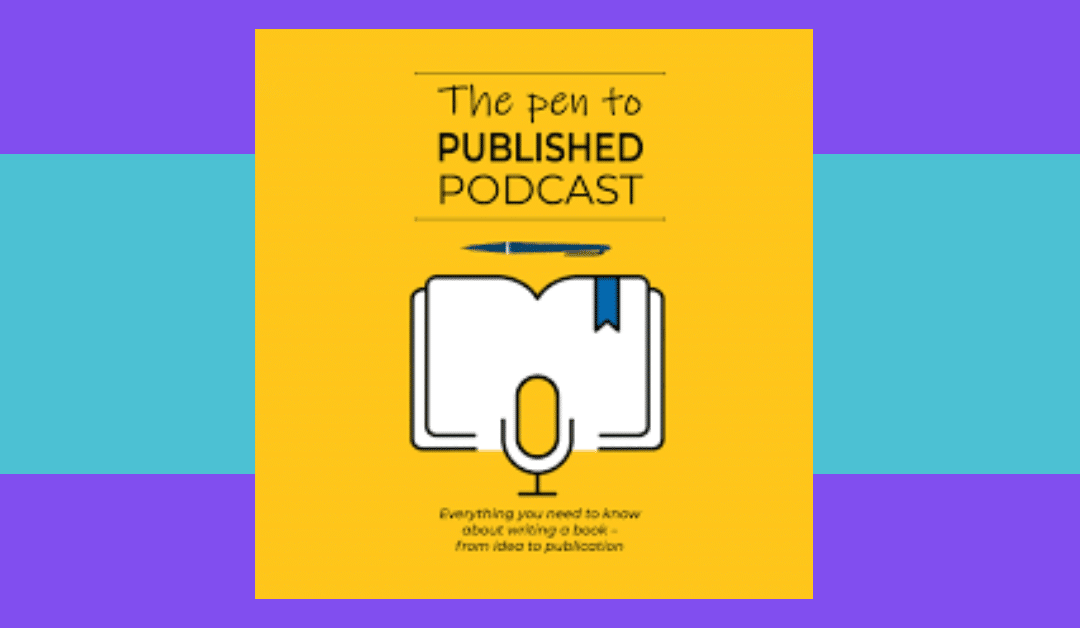The Pen to Published Podcast interview with Janey Burton [VIDEO]
I was thrilled to be asked to appear on season 6 of the Pen to Published podcast, which tackles everything authors need to know on their journey from writing their book to getting it published.
Two of my wonderful colleagues in the industry host the podcast, both named Alexa: Alexa Whitten is an author, typesetter and independent publisher, and Alexa Tewkesbury is an author, editor and proofreader.
We covered a great deal of ground in these 40 minutes, so it’s an incredibly informative episode for any writer looking to get their book published.
The episode explains such things as the different routes to getting a book published, and what they look like: the difference between a traditional publisher, a hybrid press, and a self-publishing service provider. We also talked about the dreaded vanity press, and how to spot one.
I explained the basic contract terms an author needs to be familiar with, and why authors must negotiate the terms (or get someone like me to do so for them). We even discussed what changes are reasonable to request, such as whether an author can ask for higher royalties.
We covered why authors shouldn’t try to get agents or editors to sign NDAs, why an NDA won’t do what authors often think it will, and why – even though an author may fear someone else may use their idea – if they want to get their book published and share it with the world, they will at some point need to explain what it’s about!
All this, and we also found time to talk about how to make a move from self-publishing to a traditional publisher, and whether, once you get there, your publisher will let you choose the cover of your book.
Here are some highlights:
On the different types of publishing
“The classic kind of publisher is the kind who acquires a package of publishing rights from the author and in exchange for the right to, at their own expense, produce, publish and sell the book in various formats and in various territories, they give the author in exchange an advance and/or royalties on book sales. And the proceeds from those book sales are the main source of their income.
And then a hybrid publisher behaves in some of the same ways in that they ask for exclusive publishing rights and provide royalties on book sales, but they split the risk and the reward with the author …
Then you have assisted self-publishers and self-publishing service providers, and they don’t acquire any rights from the author … And their income is the fees for those services or a commission on sales.
In self publishing, the author is in control and takes on all the risk and responsibility of the publisher, but then that author-publisher will get, after they’ve paid their overheads, all the return on their book sales. So they don’t have to split the proceeds with the publisher because they’re the publisher.”
On choosing your route to getting published
“I think because you have these different routes to publication, it’s important to be clear about what your goals are for the book. I mean, I think hybrid publishers and self-publishing service providers are actually providing different approaches to publishing, so they’re suited to different types of authors.
So I would say the important thing when choosing the route you want to take is to be really honest with yourself about where your skills and your enthusiasm lies and what your goals for the book are …”
The dangers of vanity presses
“The big danger is that the author, because they come across this company that sounds like it’s a traditional publisher and they’re saying they’re a traditional publisher or they’re a hybrid press and they’re saying, well, this is the way we do it now, that you, you pay the money and we produce the book.
They think they’re being published in something close to a traditional way and by a legitimate publisher. And so they spend a great deal of money on what ends up being often quite a poor quality book. And then they find the only person who’s buying copies is the author themselves. So that’s going to be a massive disappointment and leave the author rightfully feeling scammed.”
Why it’s ok to negotiate your contract
“Any publisher is going to welcome your questions, especially if you’re a first-time author, because they know authors don’t really understand how the publishing industry works. How could they? They don’t work in it.
So they’re very happy to answer questions. They will usually try to make what changes they can in order to make the author happy. There will be things they can’t budge on, but they’re unlikely to say, well, let’s forget the whole deal just because you want something that they can’t give you.”
Listen to the whole episode for much more!
Series 6 of the Pen to Published podcast is available on all the main podcast platforms: Apple, Google, Spotify, Youtube.
Alexa Whitten can be found at The Book Refinery and Alexa Tewkesbury at alexatewkesbury.com
Get more advice from The Inbox Edition
Don’t forget, my monthly email newsletter provides plenty of extra advice and resources for authors on a variety of topics surrounding writing and how to get your book published. Press the button below to sign up.
This article was first posted on 10th October 2023.

